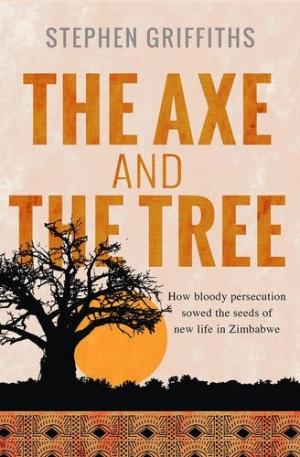The Axe and the Tree
How Bloody Persecution Sowed the Seeds of New Life in Zimbabwe
The Axe and the Tree strives to show the deep connection between the Griffiths, their faith, and the people of Zimbabwe.
The Axe and the Tree, by Stephen Griffiths, is an exhaustive recounting of the author’s parents’ journey into the mission fields of Rhodesia, later Zimbabwe, and the life his family made there from the 1950s through the traumatic transition to postcolonial autonomy in the 1970s.
Answering a missionary call issued by the Pentecostal Church in the 1950s, they entered post-WWII Rhodesia and worked to enrich locals’ lives by sharing what seemed precious and best about their own: faith, education, and access to medical care. Zealous, fervent, and largely self-taught, the Griffiths identified with the locals through a shared sense of persecution, working-class origins, and alienation from the ruling class. And they managed to do their chosen work there for nearly thirty years on a shoestring budget, while raising a family, and amidst guerrilla warfare and the wholesale slaughter of locals and missionaries alike.
As historical chronicle, the narrative doesn’t fail to record the social norms of the day, even those behaviors that seem cringe-worthy today. This dedication often humanizes Griffiths’s subjects and illustrates the complex array of societal entanglements that missionaries and locals were trying to navigate at this turning point in Zimbabwe’s history. While the narrator attempts to interrogate and contextualize many of these behaviors, analyzing his experience of racism proves slippery. Integration is frequently mistaken for equality, and no examination of the racially charged overtones of European missionary work is made.
The book struggles to cement the narrator’s perspective with the beginning written as biography and latter portions as memoir. The problem diminishes as the book leans toward memoir, although it never completely disappears. Although quite thorough and rigorous in historical detail, the tone can veer close to hagiography in its zeal to deliver religious testimony and present the lives of this missionary family as divinely ordained and perfectly ordered by submission to God.
A tribute to the author’s parents and a diligent record of their struggle to win souls for Jesus, The Axe and the Tree strives to show the deep connection between the Griffiths, their faith, and the people of Zimbabwe without deviating from a central focus on right practice, belief, and submission to God as the necessary foundation for all goodness in the world.
Reviewed by
Letitia Montgomery-Rodgers
Disclosure: This article is not an endorsement, but a review. The publisher of this book provided free copies of the book to have their book reviewed by a professional reviewer. No fee was paid by the publisher for this review. Foreword Reviews only recommends books that we love. Foreword Magazine, Inc. is disclosing this in accordance with the Federal Trade Commission’s 16 CFR, Part 255.

